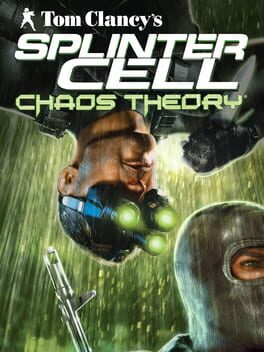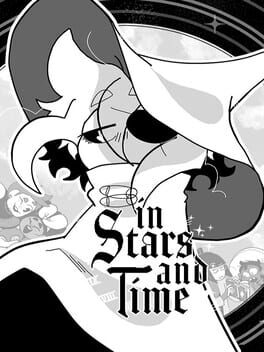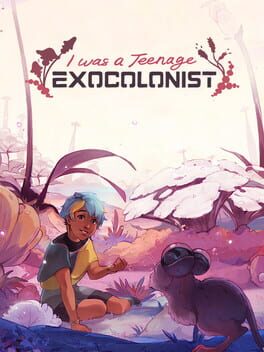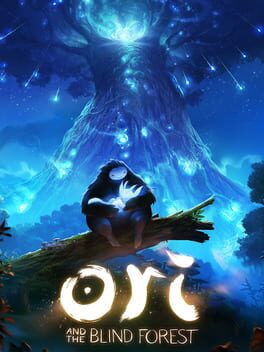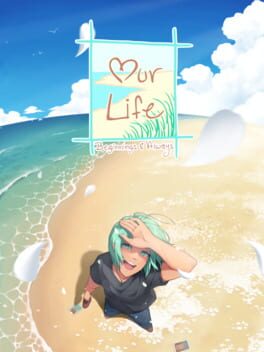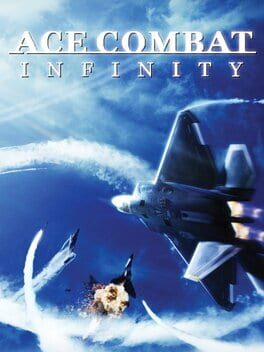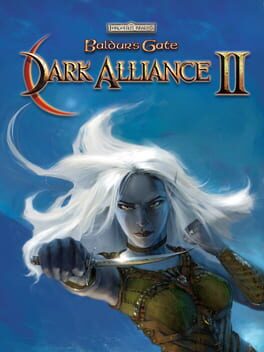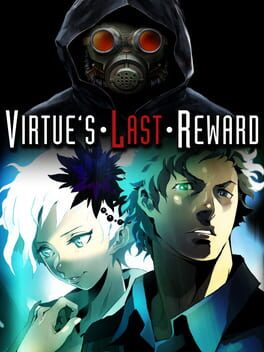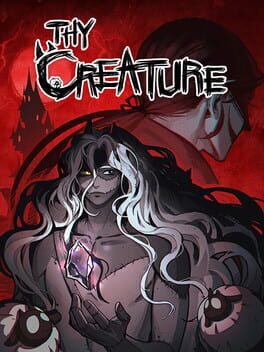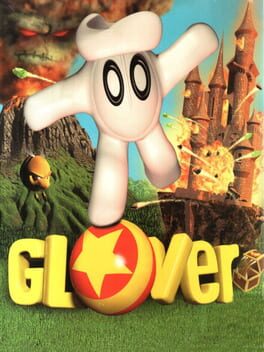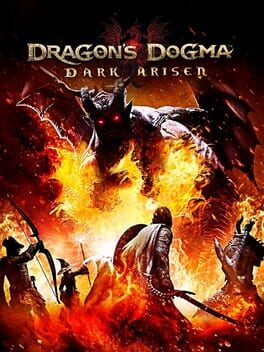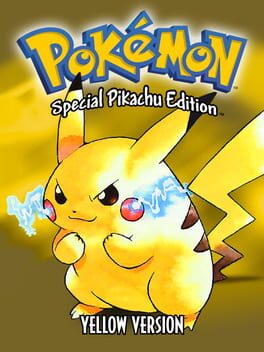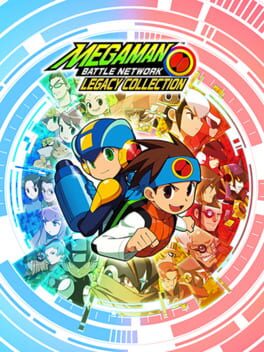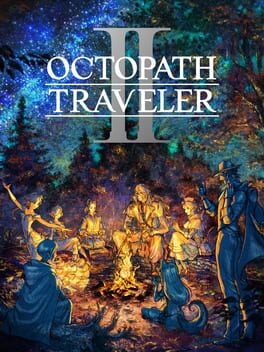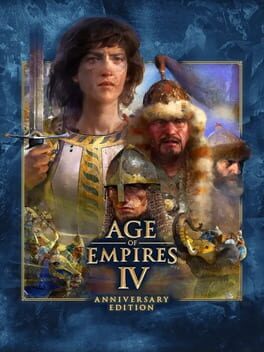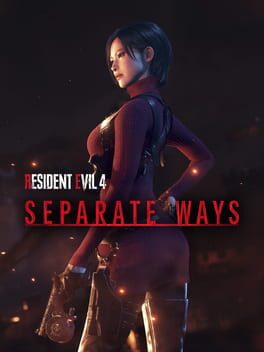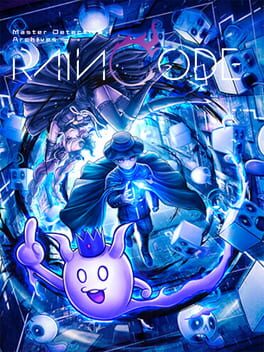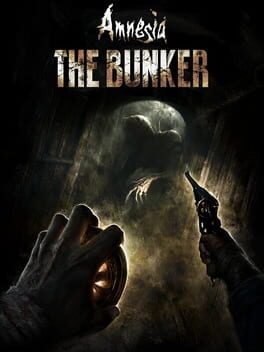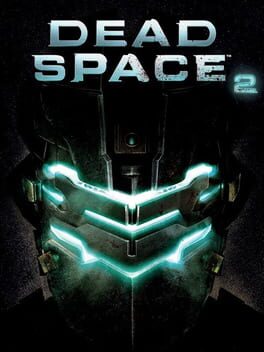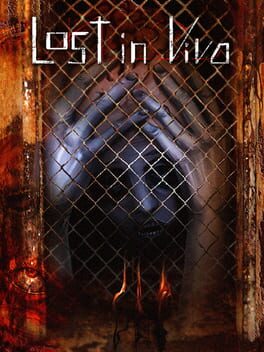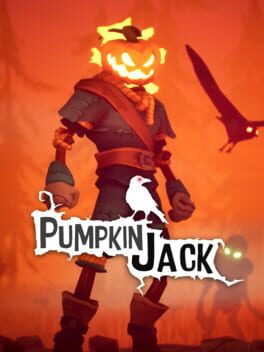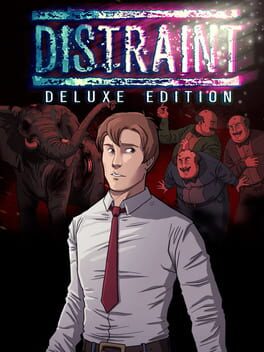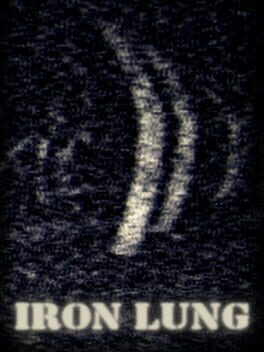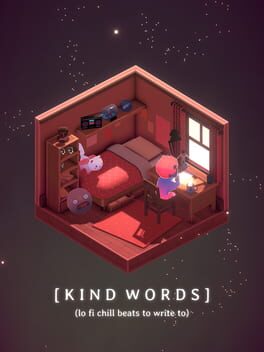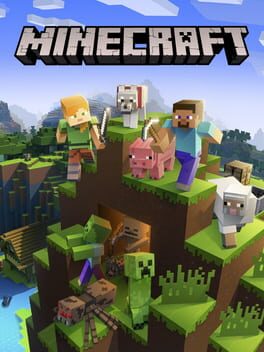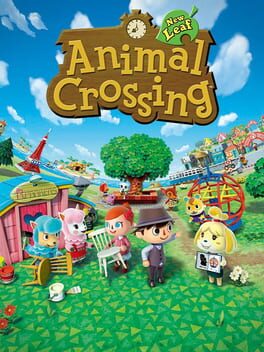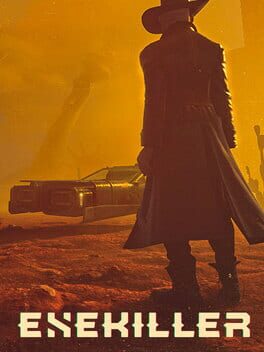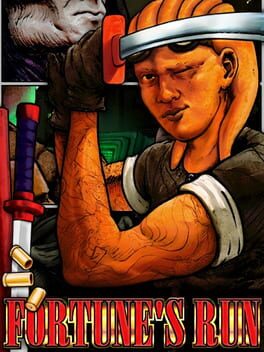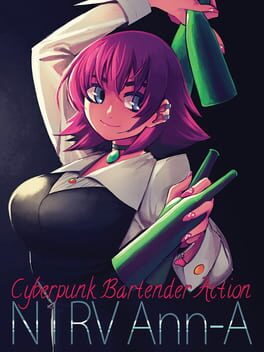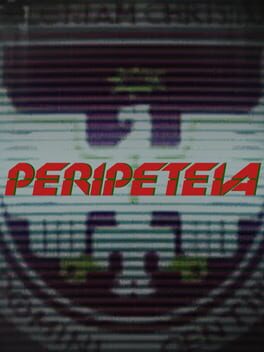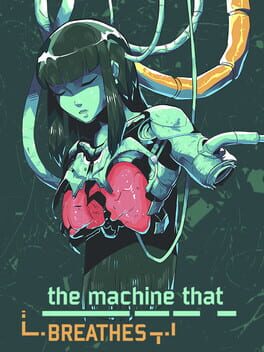Lead
BACKER
274 reviews liked by Lead
In Stars and Time
2023
(This is a rewrite of my first ever review on Backloggd! For posterity’s sake I’ll leave up that review here, but I don’t love it and I’m writing this review as an improvement on what I wanted to say back then.)
━━━━━━━━━
Before I played In Stars and Time in November of 2023, I played the proof-of-concept version, START AGAIN: a prologue a whole year and a half earlier, in April of 2022. I usually don’t play demos, especially not paid demos, but I’d been following this project based on the art style and I felt like it was something special. I liked the prologue well enough. It was charming and I was drawn to the characters. The prologue starts in medias res as the party prepare to defeat the “final boss”, the King, at the end of their JRPG journey. The catch is that the protagonist, Siffrin, is stuck in a time loop and nobody else in the party is aware. Despite this, Siffrin resolves to carry this burden alone, and to use this ability to defeat the King without worrying his allies.
My one big issue with this demo was that, although I liked him as a character, Siffrin’s decision to bottle up his feelings and keep the time loop a secret made no sense to me. It seemed contrived that he wouldn’t, even once, experiment with the time loop and tell his allies about what was going on. If it caused any issues, it wouldn’t matter – he could just loop back and START AGAIN. After the demo, I was a little disappointed but still hopeful the full release could turn my opinion around.
As the full release approached, I grew really excited. I’d been following the dev’s monthly dev logs on Steam up to release, and I bought the full game in the first week after it came out, a rare event for me. I finished it in 6 days, binging it between study sessions for my upcoming exams. I was hooked, and by the end of the game, In Stars and Time had fully recontextualized the demo.
Siffrin didn’t tell his party about the time loop because he loves them. He didn’t tell them because he refuses to be vulnerable.
When I played the demo I saw these characters from my omniscient point of view as the player, as little pawns to command in whatever way would progress the plot. Siffrin’s refusal to open up felt like an arbitrary obstacle put in place by the creator as if to say “but then we wouldn’t have a plot, would we?” But Siffrin isn’t the player, and he isn’t aware he exists in a video game. To him, the rest of the party aren’t pawns; they’re his allies. His friends. His family.
What’s more, Siffrin is incredibly repressed. He’s reserved, happy to nod along in the background because he believes that placing himself as the centre of attention will lead everyone to hate him as much as he hates himself. He sees himself as inherently less valuable than others, and takes the time loop to be his chance to martyr himself in service of his family.
I’m reminded of Jacob Geller’s video Time Loop Nihlism, wherein he talks about Deathloop and the way replaying a game desensitizes us. The more we play, the more we’re able to abstract NPCs from living, breathing people into gameplay systems. Our immersion fades with each repeat as cause and effect become predictable. This was the mindset I had playing the demo.
In Stars and Time actively subverts this idea. Siffrin refuses to allow nihilism to overtake him. Sure, if anything happened to a family member, he could reset the timeline and fix it. But in that moment, in that present moment, his family would suffer, and that suffering would be real. For the same reason we wouldn’t kill a person even though they’ll die sometime in the future anyways, Siffrin won’t let his family come to harm even though he can reset the harm they suffer. The time loop is his burden and his alone, and he will do everything in his power to allow his family to be happy for as long as he can.
In Stars and Time is repetitive. You will repeat the same dungeon over and over for the game’s entire runtime. You will fight the same enemies over and over. The same bosses. Siffrin’s family will repeat the same dialogue again and again. You will find the same items scattered throughout the dungeon. You will walk between the same rooms in the same layout looking for the same keys to progress. There are plenty of quality-of-life features to reduce frustration; you can loop to specific areas in the dungeon after dying, you can skip seen dialogue, and Siffrin retains levels between every loop while his family retain their levels at checkpoints within the dungeon. But, no matter what, you will repeat the same events over and over. You will be sent back and forth, and at several points you will progress to a certain point in the dungeon only to realize you had to do something in a now blocked-off area, forcing another reset. The ludonarrative is excellent and encourages the player to experience Siffrin’s frustrations alongside him.
This is why Siffrin’s character arc is so compelling. The whole game, he does his best to protect, long past the point the player has. Every so often he’ll make a major breakthrough, and his enthusiasm is extreme. This is it! He’s figured it out! That enthusiasm soon fades as his plans inevitably lead to more and more dead ends. Even Siffrin has his breaking point, and his growing disillusionment with the repetition, the monotony, makes him a fascinating tragic protagonist. I won’t say much because of spoilers, but the toll the time loop takes on his mental health, compounded with his poor self-esteem and inability to show vulnerability, make Siffrin an amazing and relatable protagonist.
I could praise everything about this game if I wanted to, but I chose to focus on Siffrin because his characterization is central to what makes In Stars and Time so engaging. I love its characters, its world-building, its music, its everything. Please, if what I’ve written above is at all interesting and you can stomach the repetition, you owe it to yourself to play In Stars and Time.
━━━━━━━━━
Before I played In Stars and Time in November of 2023, I played the proof-of-concept version, START AGAIN: a prologue a whole year and a half earlier, in April of 2022. I usually don’t play demos, especially not paid demos, but I’d been following this project based on the art style and I felt like it was something special. I liked the prologue well enough. It was charming and I was drawn to the characters. The prologue starts in medias res as the party prepare to defeat the “final boss”, the King, at the end of their JRPG journey. The catch is that the protagonist, Siffrin, is stuck in a time loop and nobody else in the party is aware. Despite this, Siffrin resolves to carry this burden alone, and to use this ability to defeat the King without worrying his allies.
My one big issue with this demo was that, although I liked him as a character, Siffrin’s decision to bottle up his feelings and keep the time loop a secret made no sense to me. It seemed contrived that he wouldn’t, even once, experiment with the time loop and tell his allies about what was going on. If it caused any issues, it wouldn’t matter – he could just loop back and START AGAIN. After the demo, I was a little disappointed but still hopeful the full release could turn my opinion around.
As the full release approached, I grew really excited. I’d been following the dev’s monthly dev logs on Steam up to release, and I bought the full game in the first week after it came out, a rare event for me. I finished it in 6 days, binging it between study sessions for my upcoming exams. I was hooked, and by the end of the game, In Stars and Time had fully recontextualized the demo.
Siffrin didn’t tell his party about the time loop because he loves them. He didn’t tell them because he refuses to be vulnerable.
When I played the demo I saw these characters from my omniscient point of view as the player, as little pawns to command in whatever way would progress the plot. Siffrin’s refusal to open up felt like an arbitrary obstacle put in place by the creator as if to say “but then we wouldn’t have a plot, would we?” But Siffrin isn’t the player, and he isn’t aware he exists in a video game. To him, the rest of the party aren’t pawns; they’re his allies. His friends. His family.
What’s more, Siffrin is incredibly repressed. He’s reserved, happy to nod along in the background because he believes that placing himself as the centre of attention will lead everyone to hate him as much as he hates himself. He sees himself as inherently less valuable than others, and takes the time loop to be his chance to martyr himself in service of his family.
I’m reminded of Jacob Geller’s video Time Loop Nihlism, wherein he talks about Deathloop and the way replaying a game desensitizes us. The more we play, the more we’re able to abstract NPCs from living, breathing people into gameplay systems. Our immersion fades with each repeat as cause and effect become predictable. This was the mindset I had playing the demo.
In Stars and Time actively subverts this idea. Siffrin refuses to allow nihilism to overtake him. Sure, if anything happened to a family member, he could reset the timeline and fix it. But in that moment, in that present moment, his family would suffer, and that suffering would be real. For the same reason we wouldn’t kill a person even though they’ll die sometime in the future anyways, Siffrin won’t let his family come to harm even though he can reset the harm they suffer. The time loop is his burden and his alone, and he will do everything in his power to allow his family to be happy for as long as he can.
In Stars and Time is repetitive. You will repeat the same dungeon over and over for the game’s entire runtime. You will fight the same enemies over and over. The same bosses. Siffrin’s family will repeat the same dialogue again and again. You will find the same items scattered throughout the dungeon. You will walk between the same rooms in the same layout looking for the same keys to progress. There are plenty of quality-of-life features to reduce frustration; you can loop to specific areas in the dungeon after dying, you can skip seen dialogue, and Siffrin retains levels between every loop while his family retain their levels at checkpoints within the dungeon. But, no matter what, you will repeat the same events over and over. You will be sent back and forth, and at several points you will progress to a certain point in the dungeon only to realize you had to do something in a now blocked-off area, forcing another reset. The ludonarrative is excellent and encourages the player to experience Siffrin’s frustrations alongside him.
This is why Siffrin’s character arc is so compelling. The whole game, he does his best to protect, long past the point the player has. Every so often he’ll make a major breakthrough, and his enthusiasm is extreme. This is it! He’s figured it out! That enthusiasm soon fades as his plans inevitably lead to more and more dead ends. Even Siffrin has his breaking point, and his growing disillusionment with the repetition, the monotony, makes him a fascinating tragic protagonist. I won’t say much because of spoilers, but the toll the time loop takes on his mental health, compounded with his poor self-esteem and inability to show vulnerability, make Siffrin an amazing and relatable protagonist.
I could praise everything about this game if I wanted to, but I chose to focus on Siffrin because his characterization is central to what makes In Stars and Time so engaging. I love its characters, its world-building, its music, its everything. Please, if what I’ve written above is at all interesting and you can stomach the repetition, you owe it to yourself to play In Stars and Time.
Persona 3 Reload
2024
Ever been interested in the Persona series? Start with this one!
As a big fan of Persona 3, Reload was the game I was looking forward to the most in 2024 alongside Infinite Wealth, so I did the same as with IW and held off on watching trailers past the announcement one entirely to experience the changes for myself. When the release date came closer, I began to see more and more doomposting for Reload and even considered holding off on buying it because of how negatively this game was treated by others. I'm glad that didn't get to me in the end and I could form my own opinion of the remake of one of my favorite games.
First off, the presentation in Reload is amazing right off the bat, ranging from the upgraded artstyle to the dynamic menus and improved character models, it's just so very pleasant to look at. This also includes animations - the Ultimate moves of the characters look super cool. As someone who only ever really played Portable before, the upgrade in presentation was a huge point for me. Sure, the updated environmental design of the overworld is great, but the cherry on top are the revamped Tartarus blocks. The floors are no longer mere reskins with the same layout, now every block has a detailed new look and a different pattern. Tartarus changes don't stop here though, like the previous top-down camera has been turned into a proper third-person one, which I believe adds to the immersion a lot, despite being so seemingly insignificant at first. Furthermore, exploration is incentivized with mini-bosses being accessible in ordinary floors now alongside the addition of lucrative floor-specific events like locked or special chests. Can't forget the revamped Golden Hands in Reload either, as they provide a large amount of XP now (like in Persona 4) instead of dropping items. A great change for everyone who hated grinding and the new Great Clock random event can boost two of your teammates' levels on a whim, so no one has to fall behind! I believe the new Tartarus has something in store for everyone, so even if you were turned off by the gameplay in the original, giving it a second look might be worth it...
Voice acting in Reload is top notch. I don't share the somewhat popular sentiment of Yukari and Aigis sounding worse than their original counterparts at all, they're probably even my favorite new castings. That being said, personally I wouldn't say there's a single bad casting within the new voice actors, I enjoyed all of their performances. Emotional scenes got me tearing up several times, I got shivers during others. Not to disregard some of the original actors, but Reload really elevated some characters for me, just with their new performances (Yuko, Chidori and Fuuka are great examples). Also love how every social link is completely voiced now, it's a huge boost in immersion. As for social links in general, I'm glad the new Link Episodes exist, they're basically mini social links for the male party members and give you some insight into their life. A great way to add some interaction with them to the game without replacing the already existing social links! The SEES hangouts during nighttime also fulfill a similar role in giving your teammates more screentime without taking up meaningful time (considering the abundance of free time at night in P3), this also includes new events like several study sessions with the team. Those activities aren't just for fun though, you gain new passive abilities for the other members or gain extra knowledge points while studying with the others, the integration is seamless.
The new soundtrack is... good! Not much to say here, I like the remixes of the original songs and the new songs are bangers. Color Your Night is one of the very best vocal tracks in the series and It's Going Down Now still stays hype after listening to it over and over. Shoutout to the new remix of Changing Seasons.
There's a whole lot more to unpack about this game, but for the time being I have said everything that was on my mind. My thoughts are still pretty hazy, despite completing Reload hours ago, but I hope you could get something useful out of my review either way. As always, thanks for reading!
As a big fan of Persona 3, Reload was the game I was looking forward to the most in 2024 alongside Infinite Wealth, so I did the same as with IW and held off on watching trailers past the announcement one entirely to experience the changes for myself. When the release date came closer, I began to see more and more doomposting for Reload and even considered holding off on buying it because of how negatively this game was treated by others. I'm glad that didn't get to me in the end and I could form my own opinion of the remake of one of my favorite games.
First off, the presentation in Reload is amazing right off the bat, ranging from the upgraded artstyle to the dynamic menus and improved character models, it's just so very pleasant to look at. This also includes animations - the Ultimate moves of the characters look super cool. As someone who only ever really played Portable before, the upgrade in presentation was a huge point for me. Sure, the updated environmental design of the overworld is great, but the cherry on top are the revamped Tartarus blocks. The floors are no longer mere reskins with the same layout, now every block has a detailed new look and a different pattern. Tartarus changes don't stop here though, like the previous top-down camera has been turned into a proper third-person one, which I believe adds to the immersion a lot, despite being so seemingly insignificant at first. Furthermore, exploration is incentivized with mini-bosses being accessible in ordinary floors now alongside the addition of lucrative floor-specific events like locked or special chests. Can't forget the revamped Golden Hands in Reload either, as they provide a large amount of XP now (like in Persona 4) instead of dropping items. A great change for everyone who hated grinding and the new Great Clock random event can boost two of your teammates' levels on a whim, so no one has to fall behind! I believe the new Tartarus has something in store for everyone, so even if you were turned off by the gameplay in the original, giving it a second look might be worth it...
Voice acting in Reload is top notch. I don't share the somewhat popular sentiment of Yukari and Aigis sounding worse than their original counterparts at all, they're probably even my favorite new castings. That being said, personally I wouldn't say there's a single bad casting within the new voice actors, I enjoyed all of their performances. Emotional scenes got me tearing up several times, I got shivers during others. Not to disregard some of the original actors, but Reload really elevated some characters for me, just with their new performances (Yuko, Chidori and Fuuka are great examples). Also love how every social link is completely voiced now, it's a huge boost in immersion. As for social links in general, I'm glad the new Link Episodes exist, they're basically mini social links for the male party members and give you some insight into their life. A great way to add some interaction with them to the game without replacing the already existing social links! The SEES hangouts during nighttime also fulfill a similar role in giving your teammates more screentime without taking up meaningful time (considering the abundance of free time at night in P3), this also includes new events like several study sessions with the team. Those activities aren't just for fun though, you gain new passive abilities for the other members or gain extra knowledge points while studying with the others, the integration is seamless.
The new soundtrack is... good! Not much to say here, I like the remixes of the original songs and the new songs are bangers. Color Your Night is one of the very best vocal tracks in the series and It's Going Down Now still stays hype after listening to it over and over. Shoutout to the new remix of Changing Seasons.
There's a whole lot more to unpack about this game, but for the time being I have said everything that was on my mind. My thoughts are still pretty hazy, despite completing Reload hours ago, but I hope you could get something useful out of my review either way. As always, thanks for reading!
NieR: Automata
2017
A great display of video games as an artform.
NieR: Automata is a game that goes above and beyond with its unique way of storytelling, taking full advantage of making the experience one that can't be substituted through a book or a movie - not just in terms of visual design, but also through the use of dynamic music and having its story told from the point of view of multiple protagonists.
Note that I have played NieR Replicant (the first game) right before this entry, so comparing the two games was inevitable for me. On one hand I still feel like I was doing Automata a disservice by doing so, but at the same time it was nice hearing remixes of familiar songs when they were still fresh in my memory. Either way, in my opinion something very important to anyone interested in this game, is to play Replicant first if you want the full experience. Not only because you would miss many cool references, but also because Automata doesn't hold back with spoiling the first game through the documents you can find in it and personally I'd be pretty upset if I read those before playing Replicant. Those documents are cool for returning players because you get more context for the events of the previous entry, but also spoil some of the biggest twists. Play this first at your own risk.
In contrast to Replicant, Automata's story has a lot more spectacle to it than Replicant's more grounded and personal narrative. This time you're not taking control of the teenage boy who wants to cure his sister, but instead slip into the role of android warrior 2B, who is fighting in an all-out war against machines to reclaim the planet. Considering the scale of the story, you're just one of many androids - Automata is less about the characters' personal struggles and more about the main conflict at hand. And while the overarching narrative is solid, the real highlight is how the story is told and the messages behind it. This game has multiple routes and endings and they're used particularly well here, compared to Replicant, where the routes were the same in terms of gameplay, but with new scenes. Even if Automata's Route A and B are the same string of events told through a different perspective (which turned a surprising amount of people off from doing multiple routes), the unique gameplay of 9S and some scenes from his perspective alone are worth warranting the second playthrough. Route C however is where the story really picks up in pace, while also being a fresh experience at the same time. New enemies, new plot, new soundtrack. (The enemy variety in Automata in general is way better than Replicant, there are so many machines and bosses with cool ideas!) Also, the finale of Route C completely blew me away with the "art direction" of it and the final battle at the end was the cherry on top. For those concerned about missables, after beating this route, you'll unlock Chapter Select and can freely return to any point in the story before, so there's no reason for FOMO, feel free to tackle the game at your own pace. In regards to achievements, what I found particularly interesting was the integration of a trophy shop. It's just like the name would suggest, a hidden in-game shop where you can buy the remaining achievements in exchange for virtual currency. Pretty cool if you locked yourself out of a trophy, but also really made me think about the actual point of trophies in general...
Combat and movement in Automata are definitely an upgrade to Replicant's combat... for the most part. Coming right from the first game, I was a bit surprised how slippery the controls felt, like they didn't have much weight to them. The most glaring difference was the missing vibration on hit though, it really gave the attacks more impact for me. Turns out the controls are actually quite good and responsive after spending a while with them, it just took me a bit to adjust. Now, the combat in Automata literally consists of hack-and-slash. As 2B, your main approach to offense will be slashing through the enemies (while looking really stylish) by dual-wielding a set of two weapons of choice, reaching from her signature katanas to the Beastbane from Replicant, you're free to mix and match towards whatever matches your own personal playstyle. Meanwhile the other protagonist, 9S, puts the emphasis on the "hack" in hack-and-slash. He does not have the luxury of using two weapons at once, as his model is not designed for combat, but rather for gathering intel - in gameplay terms this means you can hack into your enemies to deal large amounts of damage, destroying most normal enemies instantly. Hacking consists of a Space Invaders-like bullet hell minigame, where you need to shoot down hostile ships or towers which are shooting projectiles at you. If you get hit three times, you're getting kicked and need to hack the enemy again to get another shot at the minigame. In order to successfully complete a hack, normally all enemies need to be destroyed before being able to shoot the otherwise guarded core, but there are some exceptions, like bosses and special hacks have unique screens with other conditions attached to them. Hacking and slashing aside, there's actually a third type of combat (even if it's rarely used), the aerial combat. There are a few parts where you're mounting a flying mech and need to shoot down enemies in a rail shooter-like fashion. These segments are either 2D or top-down, your possible movements are defined by the camera angle.
Following up to the "possible movements", I'd like to talk about the possible movements in the overworld and the level design in general, because I'm really sold on both of those aspects. Moving around feels great, has a very parkour-ish feel to it and hopping or gliding onto certain structures is awesome. This also comes from the level design being a lot of fun to traverse and explore, a big step up from Replicant. All areas have an unique theme they're designed after and they're like semi-open worlds. No loading screens (aside from the ones disguised as elevators) are a huge plus and make for a really seamless experience. Not to mention those individual levels are gorgeous and still filled with so many small details, my favorites are the Forest Kingdom and Amusement Park. Shoutout to the Flooded City, although I wish that area was a bit larger. After reflecting on those areas, I'm not really sure if I prefer the medieval design of Replicant's world or the post-apocalyptic world of Automata. But one thing is for certain: traversing Automata's world didn't break my controller's right trigger spring. (Yeah, that happened in Replicant. Not even because I threw the controller or anything, it was just because I dashed a lot...)
The soundtrack is excellent. As I already stated in my opener, NieR Automata greatly makes use of the dynamic soundtracks - this means the songs shift between multiple variants, based on what is currently happening. Like when you hack an enemy as 9S, the current song slowly transitions into an 8-Bit version, depending on how much the hacking meter is filled, eventually the the hacking sequence starts and the full 8-Bit rendition plays until the minigame is completed, where it fades back to the normal version. But not only does the combat have changing music, the songs in individual areas also change based on location or story progress. An example fairly early on is the desert theme, Memories of Dust. As you walk into the desert for the first time, you will hear an instrumental version of this song, but as you get closer to the apartment ruins, the vocals fade in. It also works in reverse, because if you walk away from that location, the lyrics will fade out again. The most impactful use of the dynamic soundtrack for me was at the very end, and I won't specify this further, since you'll know what I mean when you get there.
Something very important for the PC players: Please do yourself a favor and set the anti-aliasing to SMAA, because MSAA looks really horrible in this port and also chugs performance for some reason; you won't even get consistent 60 frames, because there's some built-in limiter. Meanwhile the FidelityFX CAS option makes the colors look off, so I'd recommend turning that off too. These two things unironically took me three hours to figure out and I don't want you to go through the same pain.
In the end, I absolutely adored NieR Automata as an experience. While it didn't emotionally impact me nearly as much as Replicant, I prefer the direction and creative approach in this one, like using the route system for something a lot more meaningful than playing through the exact same events three times (and the final area four times!). It's definitely a game I will be thinking about for quite some time, as it really opened my eyes on games as an artform. Thanks for reading and glory to mankind!
NieR: Automata is a game that goes above and beyond with its unique way of storytelling, taking full advantage of making the experience one that can't be substituted through a book or a movie - not just in terms of visual design, but also through the use of dynamic music and having its story told from the point of view of multiple protagonists.
Note that I have played NieR Replicant (the first game) right before this entry, so comparing the two games was inevitable for me. On one hand I still feel like I was doing Automata a disservice by doing so, but at the same time it was nice hearing remixes of familiar songs when they were still fresh in my memory. Either way, in my opinion something very important to anyone interested in this game, is to play Replicant first if you want the full experience. Not only because you would miss many cool references, but also because Automata doesn't hold back with spoiling the first game through the documents you can find in it and personally I'd be pretty upset if I read those before playing Replicant. Those documents are cool for returning players because you get more context for the events of the previous entry, but also spoil some of the biggest twists. Play this first at your own risk.
In contrast to Replicant, Automata's story has a lot more spectacle to it than Replicant's more grounded and personal narrative. This time you're not taking control of the teenage boy who wants to cure his sister, but instead slip into the role of android warrior 2B, who is fighting in an all-out war against machines to reclaim the planet. Considering the scale of the story, you're just one of many androids - Automata is less about the characters' personal struggles and more about the main conflict at hand. And while the overarching narrative is solid, the real highlight is how the story is told and the messages behind it. This game has multiple routes and endings and they're used particularly well here, compared to Replicant, where the routes were the same in terms of gameplay, but with new scenes. Even if Automata's Route A and B are the same string of events told through a different perspective (which turned a surprising amount of people off from doing multiple routes), the unique gameplay of 9S and some scenes from his perspective alone are worth warranting the second playthrough. Route C however is where the story really picks up in pace, while also being a fresh experience at the same time. New enemies, new plot, new soundtrack. (The enemy variety in Automata in general is way better than Replicant, there are so many machines and bosses with cool ideas!) Also, the finale of Route C completely blew me away with the "art direction" of it and the final battle at the end was the cherry on top. For those concerned about missables, after beating this route, you'll unlock Chapter Select and can freely return to any point in the story before, so there's no reason for FOMO, feel free to tackle the game at your own pace. In regards to achievements, what I found particularly interesting was the integration of a trophy shop. It's just like the name would suggest, a hidden in-game shop where you can buy the remaining achievements in exchange for virtual currency. Pretty cool if you locked yourself out of a trophy, but also really made me think about the actual point of trophies in general...
Combat and movement in Automata are definitely an upgrade to Replicant's combat... for the most part. Coming right from the first game, I was a bit surprised how slippery the controls felt, like they didn't have much weight to them. The most glaring difference was the missing vibration on hit though, it really gave the attacks more impact for me. Turns out the controls are actually quite good and responsive after spending a while with them, it just took me a bit to adjust. Now, the combat in Automata literally consists of hack-and-slash. As 2B, your main approach to offense will be slashing through the enemies (while looking really stylish) by dual-wielding a set of two weapons of choice, reaching from her signature katanas to the Beastbane from Replicant, you're free to mix and match towards whatever matches your own personal playstyle. Meanwhile the other protagonist, 9S, puts the emphasis on the "hack" in hack-and-slash. He does not have the luxury of using two weapons at once, as his model is not designed for combat, but rather for gathering intel - in gameplay terms this means you can hack into your enemies to deal large amounts of damage, destroying most normal enemies instantly. Hacking consists of a Space Invaders-like bullet hell minigame, where you need to shoot down hostile ships or towers which are shooting projectiles at you. If you get hit three times, you're getting kicked and need to hack the enemy again to get another shot at the minigame. In order to successfully complete a hack, normally all enemies need to be destroyed before being able to shoot the otherwise guarded core, but there are some exceptions, like bosses and special hacks have unique screens with other conditions attached to them. Hacking and slashing aside, there's actually a third type of combat (even if it's rarely used), the aerial combat. There are a few parts where you're mounting a flying mech and need to shoot down enemies in a rail shooter-like fashion. These segments are either 2D or top-down, your possible movements are defined by the camera angle.
Following up to the "possible movements", I'd like to talk about the possible movements in the overworld and the level design in general, because I'm really sold on both of those aspects. Moving around feels great, has a very parkour-ish feel to it and hopping or gliding onto certain structures is awesome. This also comes from the level design being a lot of fun to traverse and explore, a big step up from Replicant. All areas have an unique theme they're designed after and they're like semi-open worlds. No loading screens (aside from the ones disguised as elevators) are a huge plus and make for a really seamless experience. Not to mention those individual levels are gorgeous and still filled with so many small details, my favorites are the Forest Kingdom and Amusement Park. Shoutout to the Flooded City, although I wish that area was a bit larger. After reflecting on those areas, I'm not really sure if I prefer the medieval design of Replicant's world or the post-apocalyptic world of Automata. But one thing is for certain: traversing Automata's world didn't break my controller's right trigger spring. (Yeah, that happened in Replicant. Not even because I threw the controller or anything, it was just because I dashed a lot...)
The soundtrack is excellent. As I already stated in my opener, NieR Automata greatly makes use of the dynamic soundtracks - this means the songs shift between multiple variants, based on what is currently happening. Like when you hack an enemy as 9S, the current song slowly transitions into an 8-Bit version, depending on how much the hacking meter is filled, eventually the the hacking sequence starts and the full 8-Bit rendition plays until the minigame is completed, where it fades back to the normal version. But not only does the combat have changing music, the songs in individual areas also change based on location or story progress. An example fairly early on is the desert theme, Memories of Dust. As you walk into the desert for the first time, you will hear an instrumental version of this song, but as you get closer to the apartment ruins, the vocals fade in. It also works in reverse, because if you walk away from that location, the lyrics will fade out again. The most impactful use of the dynamic soundtrack for me was at the very end, and I won't specify this further, since you'll know what I mean when you get there.
Something very important for the PC players: Please do yourself a favor and set the anti-aliasing to SMAA, because MSAA looks really horrible in this port and also chugs performance for some reason; you won't even get consistent 60 frames, because there's some built-in limiter. Meanwhile the FidelityFX CAS option makes the colors look off, so I'd recommend turning that off too. These two things unironically took me three hours to figure out and I don't want you to go through the same pain.
In the end, I absolutely adored NieR Automata as an experience. While it didn't emotionally impact me nearly as much as Replicant, I prefer the direction and creative approach in this one, like using the route system for something a lot more meaningful than playing through the exact same events three times (and the final area four times!). It's definitely a game I will be thinking about for quite some time, as it really opened my eyes on games as an artform. Thanks for reading and glory to mankind!
I’m a big proponent of the idea that “limitations breed creativity.” That’s part of the reason I love indie games so much! Gorgeous photorealistic graphics and hundreds of hours of gameplay are all well and good, but with a low budget comes a willingness to experiment, to be rough around the edges in a way that connects with its target audience with a specificity that something with a bigger budget could never manage. That ambition is what I see most in I Was a Teenage Exocolonist.
IWATE is, first and foremost, a coming-of-age story. Mechanically and thematically I’d liken this game to Citizen Sleeper, but unlike that game which takes place over a couple months, IWATE is set over the course of 10 years. Your protagonist, Sol, is only 10 years old when their spaceship, the Stratos, arrives on the alien planet Vertumna. In this new and dangerous world, Sol navigates their teen years alongside the foundation of their colony.
The breadth of IWATE’s themes is astounding. The inter- and intrapersonal journeys had while growing up juxtapose the material conditions of the colony and their settlement in new territory, with environmentalism and colonization being the primary ethical issues explored. As a teenager, when can we trust authority? As a civilian, when can we trust those in charge? What do we do when those stupid, no-good, bossy adults are the ones waging war? What about when community leaders neglect the needs of the next generation they’re meant to foster? Being a teenager is hard, but try going through puberty and adolescence in the uncharted alien wilderness. Through these topics and more, IWATE masterfully weaves together sci-fi and coming-of-age into something greater than the sum of its parts.
\\ (The following section has minor spoilers.)
During your first playthrough, you eventually learn that Sol is in a time loop. This is, in part, a diegetic justification for New Game+; it’s not like, say, Undertale, where the true story can only be unearthed through repeat playthroughs. If you’re satisfied, you can put down IWATE after your first playthrough. But you’d be missing out on a lot.
For Sol, this time loop is a blessing, not a curse. IWATE holds a great love and empathy for humanity and our potential. You can’t do everything in a single playthrough. There’s no “Golden” end, where you max out every stat, befriend everyone, and lead everyone to a perfect tomorrow. Instead, you’re encouraged to construct the lives Sol could lead, the different people they could grow up to be. Each life is equally as valid as the next. What role will you play for your community?
\\ (Spoilers end here.)
Of course, it’s only natural that IWATE falls into some pitfalls with its limitations. The more choices there are for a player to make, the more choices there are that need to be accounted for. I wish there were more ways for characters to die, I wish there were more unique endings instead of career endings, I wish romance didn’t fade into the background after you’ve gotten into a relationship. I wish the team had more resources to really flesh out everything I’ve mentioned and more. But if they had had those resources from the start, would I Was a Teenage Exocolonist exist? Limitation breeds creativity, after all.
I’ve played through IWATE twice, and I plan to play it many more times in the future. It’s ambitious and its breadth of scope is breathtaking. I haven’t discovered everything and I don’t think I ever will, but it’s that sense of infinite possibility that compels me to see what else I Was a Teenage Exocolonist has to offer.
“The child you were will not return.”
IWATE is, first and foremost, a coming-of-age story. Mechanically and thematically I’d liken this game to Citizen Sleeper, but unlike that game which takes place over a couple months, IWATE is set over the course of 10 years. Your protagonist, Sol, is only 10 years old when their spaceship, the Stratos, arrives on the alien planet Vertumna. In this new and dangerous world, Sol navigates their teen years alongside the foundation of their colony.
The breadth of IWATE’s themes is astounding. The inter- and intrapersonal journeys had while growing up juxtapose the material conditions of the colony and their settlement in new territory, with environmentalism and colonization being the primary ethical issues explored. As a teenager, when can we trust authority? As a civilian, when can we trust those in charge? What do we do when those stupid, no-good, bossy adults are the ones waging war? What about when community leaders neglect the needs of the next generation they’re meant to foster? Being a teenager is hard, but try going through puberty and adolescence in the uncharted alien wilderness. Through these topics and more, IWATE masterfully weaves together sci-fi and coming-of-age into something greater than the sum of its parts.
\\ (The following section has minor spoilers.)
During your first playthrough, you eventually learn that Sol is in a time loop. This is, in part, a diegetic justification for New Game+; it’s not like, say, Undertale, where the true story can only be unearthed through repeat playthroughs. If you’re satisfied, you can put down IWATE after your first playthrough. But you’d be missing out on a lot.
For Sol, this time loop is a blessing, not a curse. IWATE holds a great love and empathy for humanity and our potential. You can’t do everything in a single playthrough. There’s no “Golden” end, where you max out every stat, befriend everyone, and lead everyone to a perfect tomorrow. Instead, you’re encouraged to construct the lives Sol could lead, the different people they could grow up to be. Each life is equally as valid as the next. What role will you play for your community?
\\ (Spoilers end here.)
Of course, it’s only natural that IWATE falls into some pitfalls with its limitations. The more choices there are for a player to make, the more choices there are that need to be accounted for. I wish there were more ways for characters to die, I wish there were more unique endings instead of career endings, I wish romance didn’t fade into the background after you’ve gotten into a relationship. I wish the team had more resources to really flesh out everything I’ve mentioned and more. But if they had had those resources from the start, would I Was a Teenage Exocolonist exist? Limitation breeds creativity, after all.
I’ve played through IWATE twice, and I plan to play it many more times in the future. It’s ambitious and its breadth of scope is breathtaking. I haven’t discovered everything and I don’t think I ever will, but it’s that sense of infinite possibility that compels me to see what else I Was a Teenage Exocolonist has to offer.
“The child you were will not return.”
This was the first ever game I beat. Like legitimately from start to finish, understanding the story and everything, and what a first game it was. From the opening to the presentation, I love every little bit of this game. I think a little bit of a hot take, but I actually like the “boss fights” in this game.
So I revisited it now to see what my thoughts are after I have more of an appreciation for the medium in general. I’ll try not to make this too much of a nostalgia trip, but this game mean so much to me.
OST
Holy ***. What an amazing soundtrack. Perfect for studying and amazing vibes. Every song is appropriate for the setting and mood. The composer, I think, is a genius.
Gameplay
I think this really works. It’s an amazing metroidvania with beautiful settings and the smoothes animations I’ve ever seen. Moving around in this game feels so good and fluid. The pacing of abilities was great and made you feel powerful, but still left you wanting more. I know people have gripes with the combat, saying it’s too simple. I adore this combat. It’s not the focus for sure, and it does just feel like a place holder, but that’s not why I’m here. The “boss fights” are an interesting thing. The game has a combat system, but the boss fights are, “the environment is getting f**ed and you need to split.” You just run. Light spoilers, but the first boss fight is a location is being flooded with water and you need to get out as fast as you can, and that’s with all 3 of the “bosses” I know people bump up against that, but I ABSOLUTELY love that about the game. I think it’s an interesting take on the formula and super tense. The flooding tree will always be ingrained in my mind forever.
Ability’s
I’ll just point out the ones I have a conversation about.
wall climb is useful, but feels a little awkward.
Dash is the radest **** ever. It’s so satisfying down to the sound it makes. I use it so much just because it feels so dang good it rocket off enemies.
Double jump is so valuable. Again, everything the game does is so satisfying.
The ground pound makes you feel like a powerhouse every time you used it.
The feather is a plot point so not a lot of great uses there, but still feels good to glide everywhere.
Wall climb is kinda forgettable. By the time I got it, I was so used to doing the wall jump that I just never used the wall climb unless I was using the next ability.
TheabilityItotallyforgotthenameofbutyou
knowwhatI’mtalkingaboutifyouplayedthe
game. You cling onto a wall then you point the character away from it, then you launch off the wall with incredible power. This also works on the ground to launch in the air.
The ability’s are the bread and butter of this game in my opinion. I just can’t get over all of this game.
Story
I got so emotional at the end of the game. The story’s nothing huge, but if you’re invested, it is all worth it. This was the game the woke me up and I was like, “whoa! Games can be this?!”
Setting
The art is the best. I feel like I’m playing a landscape painting. The settings in this game are amazing and unforgettable. I love them all EXCEPT FOR THE FREAKING MISTY WOODS PLACE. SCREW THAT PLACE! But other then that, this is one of my favorite worlds.
All in all, this game rocks. Moon studios is amazing and I super can’t wait for No rest for the wicked to come out.
So I revisited it now to see what my thoughts are after I have more of an appreciation for the medium in general. I’ll try not to make this too much of a nostalgia trip, but this game mean so much to me.
OST
Holy ***. What an amazing soundtrack. Perfect for studying and amazing vibes. Every song is appropriate for the setting and mood. The composer, I think, is a genius.
Gameplay
I think this really works. It’s an amazing metroidvania with beautiful settings and the smoothes animations I’ve ever seen. Moving around in this game feels so good and fluid. The pacing of abilities was great and made you feel powerful, but still left you wanting more. I know people have gripes with the combat, saying it’s too simple. I adore this combat. It’s not the focus for sure, and it does just feel like a place holder, but that’s not why I’m here. The “boss fights” are an interesting thing. The game has a combat system, but the boss fights are, “the environment is getting f**ed and you need to split.” You just run. Light spoilers, but the first boss fight is a location is being flooded with water and you need to get out as fast as you can, and that’s with all 3 of the “bosses” I know people bump up against that, but I ABSOLUTELY love that about the game. I think it’s an interesting take on the formula and super tense. The flooding tree will always be ingrained in my mind forever.
Ability’s
I’ll just point out the ones I have a conversation about.
wall climb is useful, but feels a little awkward.
Dash is the radest **** ever. It’s so satisfying down to the sound it makes. I use it so much just because it feels so dang good it rocket off enemies.
Double jump is so valuable. Again, everything the game does is so satisfying.
The ground pound makes you feel like a powerhouse every time you used it.
The feather is a plot point so not a lot of great uses there, but still feels good to glide everywhere.
Wall climb is kinda forgettable. By the time I got it, I was so used to doing the wall jump that I just never used the wall climb unless I was using the next ability.
TheabilityItotallyforgotthenameofbutyou
knowwhatI’mtalkingaboutifyouplayedthe
game. You cling onto a wall then you point the character away from it, then you launch off the wall with incredible power. This also works on the ground to launch in the air.
The ability’s are the bread and butter of this game in my opinion. I just can’t get over all of this game.
Story
I got so emotional at the end of the game. The story’s nothing huge, but if you’re invested, it is all worth it. This was the game the woke me up and I was like, “whoa! Games can be this?!”
Setting
The art is the best. I feel like I’m playing a landscape painting. The settings in this game are amazing and unforgettable. I love them all EXCEPT FOR THE FREAKING MISTY WOODS PLACE. SCREW THAT PLACE! But other then that, this is one of my favorite worlds.
All in all, this game rocks. Moon studios is amazing and I super can’t wait for No rest for the wicked to come out.
Dragon's Dogma II
2024
A frustrating experience. Frustrating because what's good here is really great close to masterful even. But it's always marred by the issues the game has in design and execution that drags the experience into mediocrity.
The great:
- Combat and vocations. The combat is a lot of fun and the abilities are varied and all feel useful. I tried few vocations and they all were more fun than what I imagined them to be.
- The Pawn system. They legit felt like a party alongside you on the journey. using strangers or friends pawns was really cool to see what they are using. The pawns AI was mostly great as well. Catching you as you fall, offering hints to quest and fights.
- Some of the quests were brilliant. The quests were obtuse and vague but I felt in a good way. It lead to experimentation and once you figure things out, you feel pretty good about yourself. Some really creative quests that allowed multiple solutions. Many quests had choices that led to drastic results.
- Some of the game friction is actually great and unique. Missable quests for example. I liked a game having many quests that get missed either because you ignored them for too long or you progressed the main story. It makes the game more unique and choosing your time on the quests feels meaningful.
The bad:
- Enemy variety and density. There is a lot of talk about the friction this games offer, like the lack of easy fast travel. Itsuno said "if traveling is boring you would have to use fast ravel then your game is boring" Well Itsuno, you made the most boring game to travel in. Because the game lacks enemy variety you would have to go through the same enemies through the whole journey back and forth. Skipping and using easier fast travel option would have been less boring. The game doesn't have good traversal system either. Just walk on foot with stamina gauge all the time. Many games that offered fast travel I didn't use because traversing those world were fun. Not here..
-Many of the quests were just fetch quests going through the same locations over and over to grab flowers or some rocks.. Other quests were escort missions with the classic NPCs slower than the player. Just tedium designs really.
- Lack of location variety. Really mostly just two locations through the whole game.
- Terrible performance and frame pacing. The game looks great but horrible performance in cities that has most of the quests anyways.
- The game is quiet buggy. Many quests bugged, many enemies died in glitches, many of my pawns just died by getting stuck to the ground.
- The plot and story lol...
I came out feeling the game is undercooked and unfinished. From the quests, locales, enemy variety, and story. Even the great combat could have used extra abilities. Just another wasted potential game.
7/10
The great:
- Combat and vocations. The combat is a lot of fun and the abilities are varied and all feel useful. I tried few vocations and they all were more fun than what I imagined them to be.
- The Pawn system. They legit felt like a party alongside you on the journey. using strangers or friends pawns was really cool to see what they are using. The pawns AI was mostly great as well. Catching you as you fall, offering hints to quest and fights.
- Some of the quests were brilliant. The quests were obtuse and vague but I felt in a good way. It lead to experimentation and once you figure things out, you feel pretty good about yourself. Some really creative quests that allowed multiple solutions. Many quests had choices that led to drastic results.
- Some of the game friction is actually great and unique. Missable quests for example. I liked a game having many quests that get missed either because you ignored them for too long or you progressed the main story. It makes the game more unique and choosing your time on the quests feels meaningful.
The bad:
- Enemy variety and density. There is a lot of talk about the friction this games offer, like the lack of easy fast travel. Itsuno said "if traveling is boring you would have to use fast ravel then your game is boring" Well Itsuno, you made the most boring game to travel in. Because the game lacks enemy variety you would have to go through the same enemies through the whole journey back and forth. Skipping and using easier fast travel option would have been less boring. The game doesn't have good traversal system either. Just walk on foot with stamina gauge all the time. Many games that offered fast travel I didn't use because traversing those world were fun. Not here..
-Many of the quests were just fetch quests going through the same locations over and over to grab flowers or some rocks.. Other quests were escort missions with the classic NPCs slower than the player. Just tedium designs really.
- Lack of location variety. Really mostly just two locations through the whole game.
- Terrible performance and frame pacing. The game looks great but horrible performance in cities that has most of the quests anyways.
- The game is quiet buggy. Many quests bugged, many enemies died in glitches, many of my pawns just died by getting stuck to the ground.
- The plot and story lol...
I came out feeling the game is undercooked and unfinished. From the quests, locales, enemy variety, and story. Even the great combat could have used extra abilities. Just another wasted potential game.
7/10
Above and Beyond Sweetness
In 2022, a friend of mine recommended me Our Life: Beginning’s and Always, his reasoning being that since I am bisexual that this could be something I might end up liking. Initially, I was kind of hesitant to give the game a try. From my outside perspective looking in, it’s a romance otome visual novel, which it’s already hard to get me hooked into visual novels like that. However, it’s free, so I swallowed my pride and started a playthrough.
Almost immediately, I was sucked into a sugary sweet slice of California in Sunset Bird, and before long, I finished an entire “life” of the game, then went back, and did another. What I found was one of the most comforting, fluffy games that shuts out the outside world and allows a moment of reprieve.
The premise of the game starts with your main character at the age of six, who finds a man moving in next door. The man wants the main character to take $20 to befriend his son. Take the money or not, you’ll encounter the star of the show, Cove Holden. Fairly quickly you befriend him and will begin the first “step” of the game, the summer of childhood.
Each step of life is one summer in one of three (or four if you buy the DLC) parts of life; childhood, adolescence, and adulthood. In each step, you are given select activities to experience, each one putting you in a different situation with either family or friends, but most will focus on your relationship with Cove.
Each event has different options for you to take, and while some of them are inconsequential, a lot do have some impact on how Cove will act or what you do will alter events later in the game. While I could argue that the selections do not always allow for every type of response, and some of those missing would be more reasonable than what you’re presented, I quite enjoyed playing and seeing what I could do with each option.
But what I saw throughout each step of the game, and what made me love it more, is how nice the people around you are. Whether it be your character’s sister, your two moms, Cove’s father Cliff, or any of the friends you make in each step, each are well written and feel human, even if the dramatic and gloomy points of the game or their characters never linger long. The town of Sunset Bird is one I came to love, because of the likable characters, and the pleasant vibes it brought in every step of the game.
Cove is the star of the show, and the game goes out of its way to make sure that you will grow to like him. His inner struggles are very human and gives reason to care about him. Throughout each step, the game will nudge the player towards a (optional but c’mon) romance with Cove, and it’s super sweet.
I’m trying not to say too much about all the details of the game specifically, as I think just playing it and finding out each thing for yourself is the best way to experience Our Life: Beginnings and Always. However, throughout my experience at least, I found myself emotionally invested with every character, and Cove himself has shot up to one of my favorite characters.
What I do want to highlight is the game’s writing. I touched up on it in the options you as the player are given, but it goes further than that. GB Patch’s writing for each stage of life is not only good, but really believable. At least in my time with the game, I never read a piece of dialogue and said, “a six-year-old wouldn’t say something like that” or “they’re teenagers, this is not how they act”. It’s all very well written, and that writing is a strong reason I kept playing.
But more importantly, and absolutely my favorite part, is the handling of queer writing. Our Life: Beginning and Always embraces LGBT+ themes very openly. For starters, you can make your player character whatever you want them to be, and just like any actual queer person, have their feelings and own self change in each step of the game. Want to start off as a male, but have your character discover to embrace being transgender or non-binary? Then it’s possible, and incorporated with actual care.
Even further, a lot of the cast in the game is also queer. The player character has two mothers, who married and adopted both the main character and your sister. Not once did I think this was a strange decision, it just felt extremely natural here. You’ll also have an openly transgender character as one of your friends. With DLC, two additional characters can be romanced in a same-sex relationship as Cove.
In a lot of games, I never really find myself satisfied with how queerness is portrayed. Every so often we’ll get a game that doesn’t shy away from queer themes, but also embraces them either upfront or subtlety. However, there are also plenty of shallow duds, which either play it safe, use it as a bad joke, or do not even try to make it feel “normal”, but rather a gimmick tacked on for brownie points. Here though, GB Patch has put care into making a game that’s not only inclusive, but well-meaning and comfortable. That’s the word, it’s comforting.
With how much I hear of gay jokes or flat out homophobia, it doesn’t really bother me, but rather annoys me. How do we still live in a time where someone's life and way of life can be so despised? Why did I have to spend so much of it ashamed of who I was, and how others around me would feel about my sexuality? It's lame, and this game knows that those feelings are lame. So, it’s nice that Our Life: Beginnings and Always just feels like a nice warm hug away from the nonsense and venom people today can spew.
Would I recommend Our Life: Beginnings and Always to everyone? Absolutely not. Unless you’re queer, really into slice of life and/or visual novels that just keep it sweet, this really isn’t going to do it for you. But what I found is one of my favorite games, a game so good and so sweet that it being free is a damn crime. A game that is comfort for when I want to step away from the negativity of the world or the negativity of myself and want to have a smile plastered on my face. I would go to say it’s one of the best visual novels out there, with the likes of VA-11 Hall-A. But above all else, one of the best examples of queer writing out there in video games. To me, that makes it something special. I've wanted to write about this game for so long, and it felt good to do so.
Grand Theft Auto VI and Monster Hunter Wilds will be on their knees when the sequel, Our Life: Now and Forever, drops in 2025. Truly, it will be game of the year, I just know it.
In 2022, a friend of mine recommended me Our Life: Beginning’s and Always, his reasoning being that since I am bisexual that this could be something I might end up liking. Initially, I was kind of hesitant to give the game a try. From my outside perspective looking in, it’s a romance otome visual novel, which it’s already hard to get me hooked into visual novels like that. However, it’s free, so I swallowed my pride and started a playthrough.
Almost immediately, I was sucked into a sugary sweet slice of California in Sunset Bird, and before long, I finished an entire “life” of the game, then went back, and did another. What I found was one of the most comforting, fluffy games that shuts out the outside world and allows a moment of reprieve.
The premise of the game starts with your main character at the age of six, who finds a man moving in next door. The man wants the main character to take $20 to befriend his son. Take the money or not, you’ll encounter the star of the show, Cove Holden. Fairly quickly you befriend him and will begin the first “step” of the game, the summer of childhood.
Each step of life is one summer in one of three (or four if you buy the DLC) parts of life; childhood, adolescence, and adulthood. In each step, you are given select activities to experience, each one putting you in a different situation with either family or friends, but most will focus on your relationship with Cove.
Each event has different options for you to take, and while some of them are inconsequential, a lot do have some impact on how Cove will act or what you do will alter events later in the game. While I could argue that the selections do not always allow for every type of response, and some of those missing would be more reasonable than what you’re presented, I quite enjoyed playing and seeing what I could do with each option.
But what I saw throughout each step of the game, and what made me love it more, is how nice the people around you are. Whether it be your character’s sister, your two moms, Cove’s father Cliff, or any of the friends you make in each step, each are well written and feel human, even if the dramatic and gloomy points of the game or their characters never linger long. The town of Sunset Bird is one I came to love, because of the likable characters, and the pleasant vibes it brought in every step of the game.
Cove is the star of the show, and the game goes out of its way to make sure that you will grow to like him. His inner struggles are very human and gives reason to care about him. Throughout each step, the game will nudge the player towards a (optional but c’mon) romance with Cove, and it’s super sweet.
I’m trying not to say too much about all the details of the game specifically, as I think just playing it and finding out each thing for yourself is the best way to experience Our Life: Beginnings and Always. However, throughout my experience at least, I found myself emotionally invested with every character, and Cove himself has shot up to one of my favorite characters.
What I do want to highlight is the game’s writing. I touched up on it in the options you as the player are given, but it goes further than that. GB Patch’s writing for each stage of life is not only good, but really believable. At least in my time with the game, I never read a piece of dialogue and said, “a six-year-old wouldn’t say something like that” or “they’re teenagers, this is not how they act”. It’s all very well written, and that writing is a strong reason I kept playing.
But more importantly, and absolutely my favorite part, is the handling of queer writing. Our Life: Beginning and Always embraces LGBT+ themes very openly. For starters, you can make your player character whatever you want them to be, and just like any actual queer person, have their feelings and own self change in each step of the game. Want to start off as a male, but have your character discover to embrace being transgender or non-binary? Then it’s possible, and incorporated with actual care.
Even further, a lot of the cast in the game is also queer. The player character has two mothers, who married and adopted both the main character and your sister. Not once did I think this was a strange decision, it just felt extremely natural here. You’ll also have an openly transgender character as one of your friends. With DLC, two additional characters can be romanced in a same-sex relationship as Cove.
In a lot of games, I never really find myself satisfied with how queerness is portrayed. Every so often we’ll get a game that doesn’t shy away from queer themes, but also embraces them either upfront or subtlety. However, there are also plenty of shallow duds, which either play it safe, use it as a bad joke, or do not even try to make it feel “normal”, but rather a gimmick tacked on for brownie points. Here though, GB Patch has put care into making a game that’s not only inclusive, but well-meaning and comfortable. That’s the word, it’s comforting.
With how much I hear of gay jokes or flat out homophobia, it doesn’t really bother me, but rather annoys me. How do we still live in a time where someone's life and way of life can be so despised? Why did I have to spend so much of it ashamed of who I was, and how others around me would feel about my sexuality? It's lame, and this game knows that those feelings are lame. So, it’s nice that Our Life: Beginnings and Always just feels like a nice warm hug away from the nonsense and venom people today can spew.
Would I recommend Our Life: Beginnings and Always to everyone? Absolutely not. Unless you’re queer, really into slice of life and/or visual novels that just keep it sweet, this really isn’t going to do it for you. But what I found is one of my favorite games, a game so good and so sweet that it being free is a damn crime. A game that is comfort for when I want to step away from the negativity of the world or the negativity of myself and want to have a smile plastered on my face. I would go to say it’s one of the best visual novels out there, with the likes of VA-11 Hall-A. But above all else, one of the best examples of queer writing out there in video games. To me, that makes it something special. I've wanted to write about this game for so long, and it felt good to do so.
Grand Theft Auto VI and Monster Hunter Wilds will be on their knees when the sequel, Our Life: Now and Forever, drops in 2025. Truly, it will be game of the year, I just know it.
Hi-Fi Rush
2023
Happy to own this game in my possession now on PS5, and I am once again reminded why this game is considered a masterpiece as I replay it. I found myself unable to stop playing, despite having already beaten it last year.
The satisfying rhythm combat, endearing writing, and great music are seamlessly combined with stunning visuals that will stand the test of time. It's a special video game where everything comes together to make one of the best games of 2023 that Tango Gameworks should be proud of making it.
I'm so happy to see this game on other platforms for more people to play it. I can't recommend this enough!
The satisfying rhythm combat, endearing writing, and great music are seamlessly combined with stunning visuals that will stand the test of time. It's a special video game where everything comes together to make one of the best games of 2023 that Tango Gameworks should be proud of making it.
I'm so happy to see this game on other platforms for more people to play it. I can't recommend this enough!
36 lists liked by Lead
by Lemonstrade |
47 Games
by bunkitz |
10 Games
by smitch99 |
18 Games
by Mezoly |
16 Games
by Nancyfly |
16 Games
by DeemonAndGames |
11 Games
by DeemonAndGames |
17 Games
by Detectivefail |
33 Games
